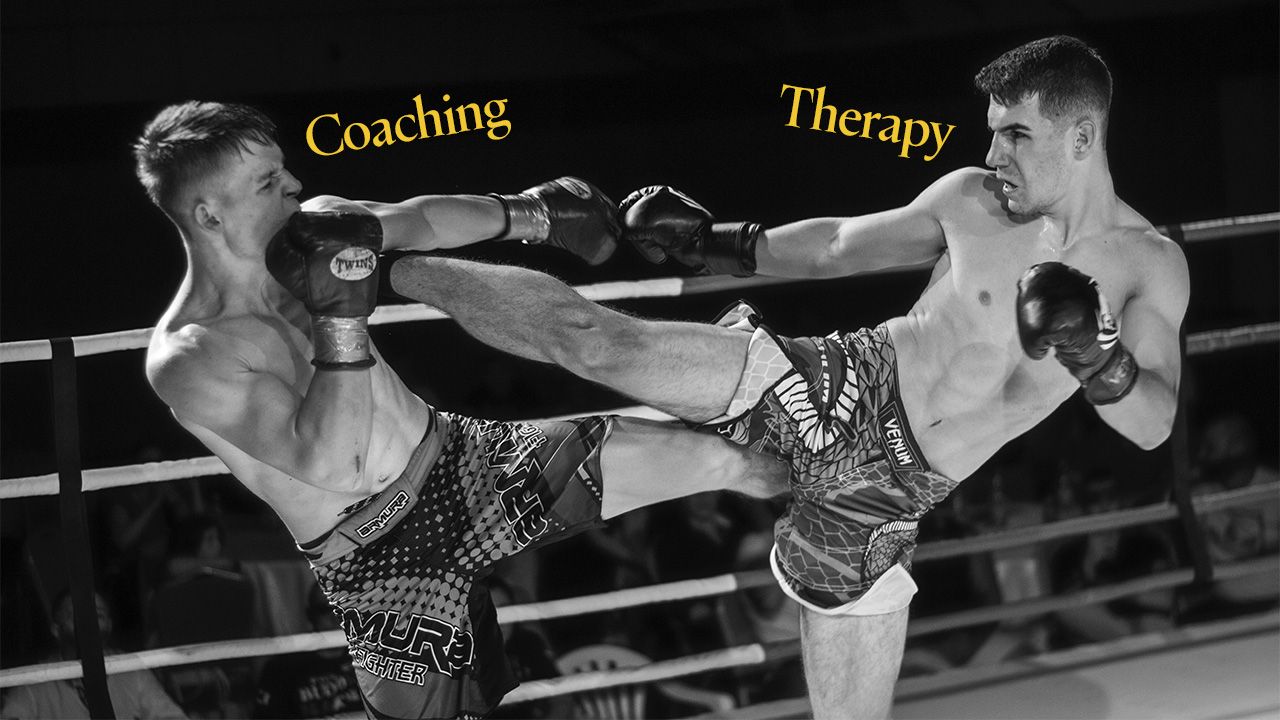Coaching Vs. Therapy: The Long Answer

Want to listen to this article? Tune in here.
In last week’s blog, I asked but did not answer the question Professional Coaches are often asked:
What’s the difference between Coaching and Therapy?
Experience has proven to me that there’s no quick and easy answer to this question. But here are 6 insights I’ve gained in the last decade:
1. Coaching and Therapy are two mighty tools that share a powerful mission — to make people feel and do better. As such there are fascinating areas of overlap.
2. While Therapy delves into the roots of our behaviors and actions, Coaching places a greater emphasis on propelling individuals towards tangible progress in their daily lives. Although both approaches consider the "why," Coaching prioritizes the "what" and "how" of achieving concrete goals and creating lasting change.
3. Many people choose to work with both a Therapist and a Coach. This can be a very powerful dynamic for some whereas redundant for others.
4. Therapy is far more regulated as an industry. Coaching is getting there, but is still somewhat of a Wild West! That is why it’s crucial to work with a Coach based on personal recommendations from trusted sources who have worked directly with that Coach.
5. Some forms of Therapy are totally focused on exploring the past. Coaching at its best believes that the past is a place of reference, not one of residence.
6. Therapy can be a powerful catalyst in helping individuals move from dysfunctional to functional. Once functional, Coaching can take over and act as a high-performance engine to bring us to optimal.
My greatest advice is to not get too caught up in the distinction between these two modalities. If there is a professional who is willing and able to partner with you to dramatically better your life — and you’ll have to assess this by first experiencing their coaching — ask yourself if their titles and certifications really matter?







